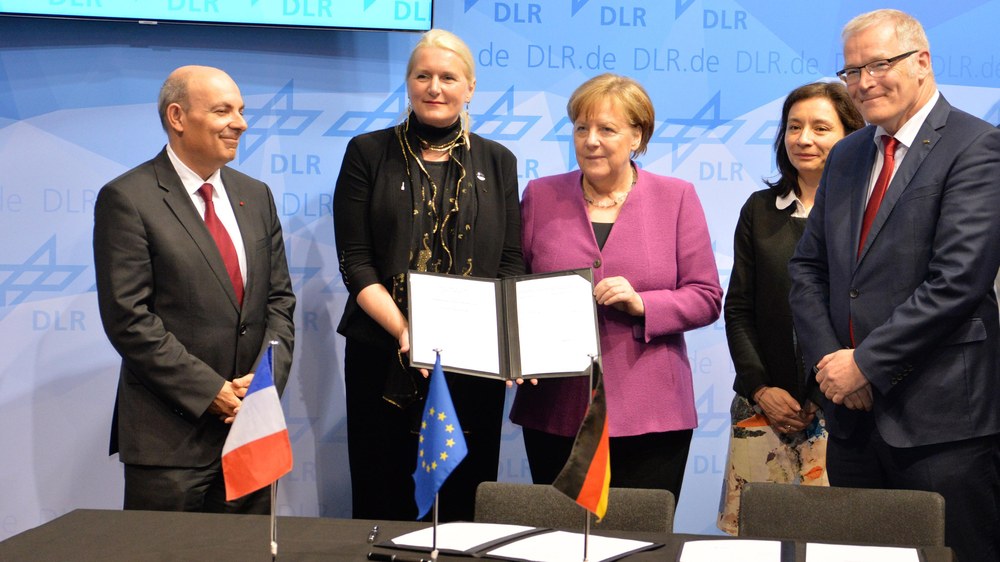DLR and Dassault sign purchase contract for the flight test vehicle iSTAR


- Falcon 2000LX will be rebuilt as a 'flying simulator'
- iSTAR will be a powerful tool to assess the flight characteristics of newly developed environment friendly aircraft configurations under realistic conditions
- New research aircraft will be stationed at DLR’s Braunschweig location from 2020
- Focus: Aeronautics, digitalisation
On 25 April 2018, at the Berlin Air Show ILA 2018, the
German Aerospace Center (Deutsches Zentrum für Luft- und Raumfahrt; DLR)
and Dassault signed the purchase contract for a Falcon 2000 LX twinjet in the presence of German Chancellor Angela Merkel. The agreement involves the delivery of the aircraft and its conversion into the flight test vehicle iSTAR (in-flight Systems and Technology Airborne Research) by 2020. With iSTAR, it is possible to test (in real conditions) the flight characteristics of newly designed, real or virtual aircraft within the iSTAR flight envelope, including the in-flight simulation of unmanned systems. In addition, iSTAR will serve as test bed in the classic fields of aerodynamics, aeroelasticity, structures, propulsion, flight control and flight guidance.
“Dassault is granting DLR access to its in-house development expertise and extensive experience in aerodynamics,” says Chair of the DLR Executive Board, Pascale Ehrenfreund, about the special partnership. “The Falcon 2000LX has the required flight and safety margins we need for a research aircraft and greatly enhances our ability to conduct interdisciplinary research throughout the aviation system,” says Ehrenfreund.
Equipment with digital flight control and experimental system
The Falcon 2000 LX is an experimental aircraft used by Dassault for flight testing and development purposes. The aircraft will be transferred to Bordeaux-Mérignac where it will initially be converted into an instrumented flight test vehicle to be operational by 2020. Two further development phases will follow until mid-2020s, in order to achieve full operational capability.
“With the iSTAR research aircraft, DLR is acquiring the ability to perform in-flight simulation, which is a powerful tool for assessing the flight characteristics of newly-developed aircraft configurations under realistic conditions,” says Rolf Henke, DLR Executive Board Member for Aeronautics. “This will greatly facilitate the development of new greener and more efficient aircraft and components, and will enable the evaluation of increasingly automated pilot assistance systems, including automatic taxiing and take-off, and enhance the testing of unmanned aerial vehicles and their integration into controlled airspace.”
“DLR is one of the largest and most respected aeronautics research centres in the world and we are proud to be part of this ambitious new test and research programme,” says Dassault CEO Eric Trappier. “This project will make a significant contribution to improving the safety and efficiency of manned and unmanned aerial vehicles, which is a top priority for the aviation industry.”
The fully functional iSTAR research aircraft will be equipped with additional control surfaces, an experimental digital flight control system and other hardware, including an intuitive EASy II cockpit with EFVS, a Rockwell Collins head-up display and a Dassault Falcon Sphere II electronic flight bag suite.
The new research aircraft will be stationed at the DLR site in Braunschweig and will be made available to other national and European research institutes as well as aircraft manufacturers and suppliers.

